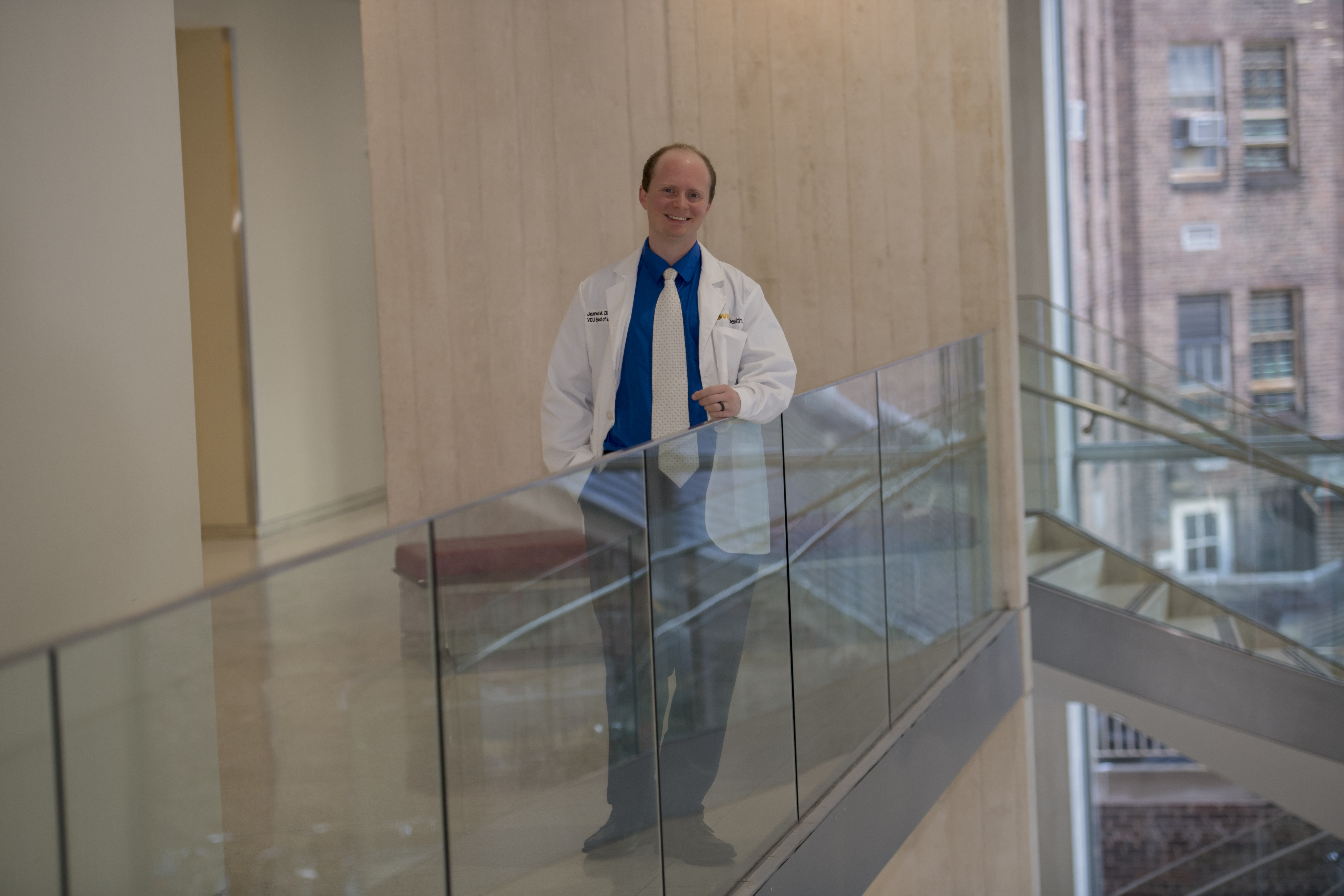 The Class of 2022's James Dittman, who had three posters accepted at the 2019 Vascular Annual Meeting, attributes his success to the mentorship he's received on the MCV Campus.
The Class of 2022's James Dittman, who had three posters accepted at the 2019 Vascular Annual Meeting, attributes his success to the mentorship he's received on the MCV Campus.
Not everyone can scan vast fields of data and see the patterns hiding there. Fewer still can easily recognize how those patterns might change the lives of individual patients.
Yet the Class of 2022's James Dittman is one of those few. As he wrapped up his first year in the School of Medicine, Dittman had three data-driven posters accepted at the Vascular Annual Meeting in National Harbor, Maryland, in June.
Each of his abstracts highlighted discoveries made through examination of data sets: the detection of unsafe medical devices long before they would otherwise be recalled; the likelihood of fractures among given brands of bare metal stents; and an estimation of the prevalence of vascular disease in Latin American countries, designed to enable appropriate allocation of limited resources.
Dittman, president of the Vascular Surgery Interest Group at VCU, says he didn't expect to have all three posters accepted. “It was really only possible because I had so much mentorship at VCU.”
Michael Amendola, M'02, H'07, F'09, associate professor in the Department of Surgery, serves as Dittman's primary mentor and adviser. He calls Dittman a one-in-a-thousand student.
“James is very easy to mentor,” Amendola says, “He can take an idea and run with it, and come back to me not just with data, but with a narrative. He has an advanced ability to do that. It’s very, very rare to see that.”
Dittman's interest in big data began when he was an undergraduate at the University of Virginia working at a small biotech firm. During his gap year, he balanced work as a data researcher and volunteer firefighter in Charlottesville — a fitting gig, as vascular surgeons are known as the firefighters of the operating room.
As a recipient of multiple philanthropically funded scholarships, Dittman is grateful to have the scholarships fund a portion of his medical school tuition, giving him the freedom to dive into extracurricular research and projects.
"They are essential to my being able to focus on what I want to accomplish and do, instead of being caught up on, ‘How am I going to pay for it?’ They will have a big impact on me for years to come.”
This summer, Dittman received the Dean’s Summer Research Fellowship, which enabled him to work with Amendola on a research project at the Hunter Holmes McGuire Veterans Affairs Medical Center, where Amendola chairs the Division of Vascular Surgery. He hopes the work will improve the quality of life of amputees after surgery.
While past studies have focused on mortality rates of amputees within the VA system, Dittman says not enough research exists on mobility, pain and risk of further amputations. Again, he sifted through data, this time seeking clues that could predict, for example, whether a patient might eventually walk with a prosthetic. The goal, he says, is “to try to connect some of the factors we can measure before and during an operation with patients’ quality of life afterward."
Though he’s a natural with numbers, the pull of personal connections ultimately drew Dittman, who'll be the first physician in his family, to medicine. “I really enjoy science and technology, but I also enjoy being with people and being able to feel that I’m helping people.”